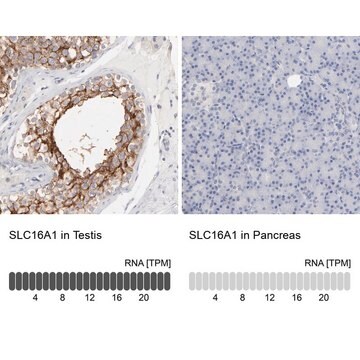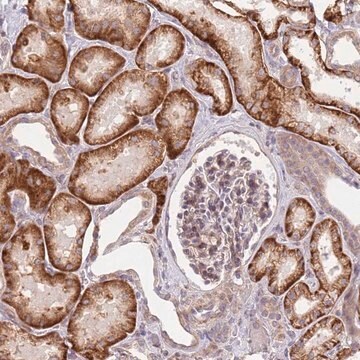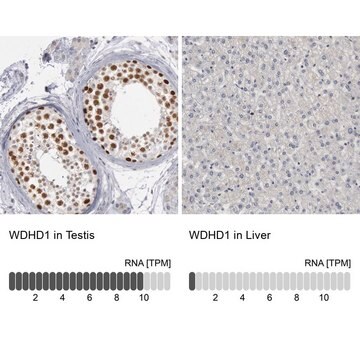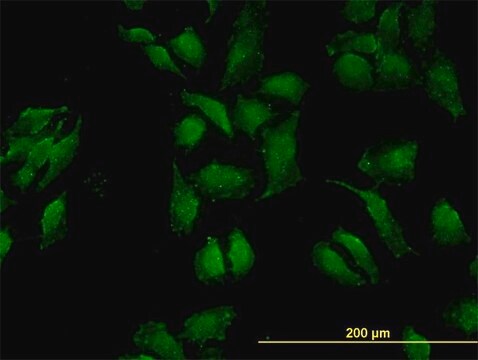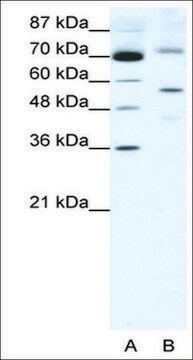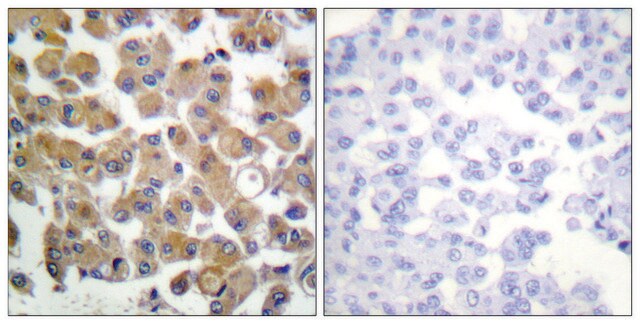HPA021451
Anti-SLC16A3 antibody produced in rabbit
Prestige Antibodies® Powered by Atlas Antibodies, affinity isolated antibody, buffered aqueous glycerol solution
Synonym(e):
Anti-MCT 3, Anti-MCT 4, Anti-Monocarboxylate transporter 3, Anti-Monocarboxylate transporter 4, Anti-Solute carrier family 16 member 3
About This Item
Empfohlene Produkte
Biologische Quelle
rabbit
Qualitätsniveau
Konjugat
unconjugated
Antikörperform
affinity isolated antibody
Antikörper-Produkttyp
primary antibodies
Klon
polyclonal
Produktlinie
Prestige Antibodies® Powered by Atlas Antibodies
Form
buffered aqueous glycerol solution
Speziesreaktivität
rat, human, mouse
Methode(n)
immunofluorescence: 0.25-2 μg/mL
immunohistochemistry: 1:200-1:500
Immunogene Sequenz
AEEEKLHKPPADSGVDLREVEHFLKAEPEKNGEVVHTPETSV
UniProt-Hinterlegungsnummer
Versandbedingung
wet ice
Lagertemp.
−20°C
Posttranslationale Modifikation Target
unmodified
Angaben zum Gen
human ... SLC16A3(9123)
Allgemeine Beschreibung
Immunogen
Anwendung
Biochem./physiol. Wirkung
Leistungsmerkmale und Vorteile
Every Prestige Antibody is tested in the following ways:
- IHC tissue array of 44 normal human tissues and 20 of the most common cancer type tissues.
- Protein array of 364 human recombinant protein fragments.
Verlinkung
Physikalische Form
Rechtliche Hinweise
Haftungsausschluss
Sie haben nicht das passende Produkt gefunden?
Probieren Sie unser Produkt-Auswahlhilfe. aus.
Lagerklassenschlüssel
10 - Combustible liquids
WGK
WGK 1
Analysenzertifikate (COA)
Suchen Sie nach Analysenzertifikate (COA), indem Sie die Lot-/Chargennummer des Produkts eingeben. Lot- und Chargennummern sind auf dem Produktetikett hinter den Wörtern ‘Lot’ oder ‘Batch’ (Lot oder Charge) zu finden.
Besitzen Sie dieses Produkt bereits?
In der Dokumentenbibliothek finden Sie die Dokumentation zu den Produkten, die Sie kürzlich erworben haben.
Artikel
Drug Transport
Unser Team von Wissenschaftlern verfügt über Erfahrung in allen Forschungsbereichen einschließlich Life Science, Materialwissenschaften, chemischer Synthese, Chromatographie, Analytik und vielen mehr..
Setzen Sie sich mit dem technischen Dienst in Verbindung.